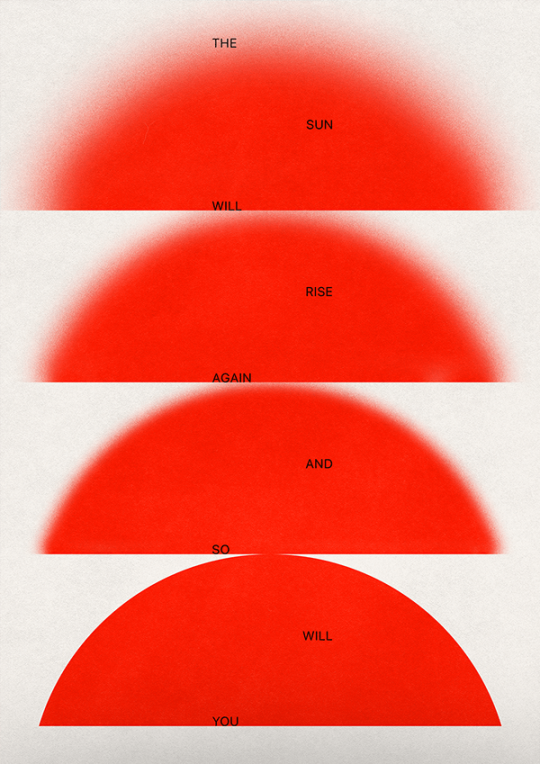Text
i want to fully transform into a mountainous cloud in the chaos of my mind — with recognition of being peacefully still, no matter the present storm.
7 notes
·
View notes
Text
it is a heavy thought that I feel my ways of expression, communication and passion are strictly judged by the people I care about.
each day, I feel isolated in my own mind and alone because there is not one present soul that makes me fee 3000% comfortable with expressing any and everything that flows thru my heart and spirit.
i test the waters sometimes, open up emotionally to others and am shot down to where I later feel so uncomfortably judged, not looking to be agreed with but just wanted to be heard.
i am more mindful of the way I communicate, though, I am a powerful soul and I speak with power and conviction. many may not understand how to receive those energies, and I remind myself to turn my dial to their level of understanding. And sometimes, I forget who I’m talking to — passion takes over, and paints a picture of expressive emotionality.
i don’t want everyone to understand me, i just want to be respected and heard enough by my loved ones. respected and heard to where when I speak about anything that brings me a specific energy, I am able to express, vent, without feeling like I should’ve kept my mouth shut in the beginning.
at this point, the only person I trust with my heart is myself. the only person I trust with my spirit, is myself. my mental, all me. my expression and emotion, self has self’s back.
i don’t have many friends, very few quality friends at that, though now… I’m questioning everyone’s capabilities to keep my heart safe.
the danger zone.
1 note
·
View note
Text
pain is liberating tf out of me right now. there’s nothing I cannot get through. i heal to get better, not to get even.
0 notes
Text
to my soulmate I hope I still have a soul by the time yo ass come
3K notes
·
View notes
Text
never thought about writing before until very recently. im not too familiar with the grammar mechanics that make up a successful speaker/writer… but idgaf about that. im here to speak, to release, to unbind myself from the sunken thought life i find myself trapped in quite often.
1 note
·
View note
Photo

Kyoshi Awazu, New York Philharmonic concert poster, 1979.
6K notes
·
View notes
Text
How to Begin a Daily Meditation Practice
There are seemingly endless techniques for practicing meditation and just as seemingly endless reasons to take up a meditation practice. This post, however, will assume two things.
You have already decided that you would benefit from a daily meditation practice.
You have chosen a technique.
At this point, as a beginner, any technique is fine to start out. My advice is to choose one and stick to it for at least a month before trying something different. Most meditation techniques involve applying attention in combination with a support for that attention: a visualization, a mantra, a sensation, etc.
But how should you approach meditation as a beginner? How can you begin such that you don't become frustrated or feel like you're doing it wrong? And how can you give yourself the best chance to grow a daily practice? That's what we are going to discuss here.
So let's begin.
Technique versus Goal
Learning how to meditate is like learning how to do a yoga pose.
When people see certain yoga poses, they say “I’m not flexible enough to do yoga.” And when they think about meditation, they say “I can’t sit still that long,” or “My mind has too many thoughts for something like that.”
All of that is like saying you are too weak to lift weights. This is literally why you are doing yoga or meditation!
It is important to emphasize for a yoga beginner that one grows into poses, not forced into. Certain physical adjustments are made to allow for the most appropriate alignment. For example, if you can't touch your toes without rounding your back, then you are told to bend your knees until you can touch your toes. Then you relax into the stretch. This way, instead of meaninglessly contorting your body into a position, you are receiving the benefits the pose is intended to confer.
The body will naturally find its way into that pose more and more as flexibility and strength increases with practice. Throughout the process the practitioner should focus on proper alignment, full breaths, and relaxing any unnecessary tensions.
This is very similar to meditation. While silent peaceful sitting is the eventual outcome of the practice, it is not where your focus should be. If you practice the technique appropriately, the silence will happen on its own in time. Just like the yoga pose.
Technique Leads to the Goal
For a meditation beginner, your concern should be first on finding the correct position for your attention in terms of the technique and then the right balance of focus and relaxation. After that, you need to bring your attention back to the technique every time you realize your mind has wandered.
That process of bringing your attention back over and over is part of the meditation practice and process. If you catch your mind wandering, it does not mean you have messed up. You do not need to judge or scold yourself. Just re-orient your attention back to the practice. There will come a point in which your mind will simply stop wandering off. This is not because you are forcing your mind to stay in one place. It is because your mind has settled down comfortably and wakefully.
It can take weeks, months, or years to get to that point but it doesn't matter. It is the process of getting there that gives you the typical benefits of meditation. You grow patience, peace, spontaneous love and joy, and an unexpected sense of tranquil sacredness along the way.
Thinking versus Having Thoughts
Once the mind starts settling down, you will discover something: there is a difference between thinking and having thoughts. Actively thinking means you are engaging in the mental phenomena and following them down a train of thoughts. Whereas having thoughts simply means that something pops into your head. If you don’t think about those thoughts further, they simply disappear the same way they appeared.
So as you settle down in your meditation practice, you will realize that thoughts still pop up even when you aren't actively thinking. What was happening before was that you were following those thoughts down avenues of contemplation or imagination, and over time you settled down and stopped doing so. However, those thoughts still pop up even now.
What do you do about this phenomenon of 'having thoughts'? Nothing.
You let the thoughts pop up and then disappear; just remain focused within the meditation technique you are practicing. Some of those thoughts may seem random, others may be repressed memories or subconscious emotions. You could call them karmas or imprints. If you let them come and go without reacting to them, they get released. Sometimes they pop up many times before they stop coming.
This phase of practice is like turning off a ceiling fan. The fan continues to spin for a while before it becomes still. Let the fan stop on its own.
Another metaphor is that this phase is like a glass of water with dirt all churned up inside it. If you try to force the dirt to settle at the bottom, you will just stir it up more. But if you just sit and are patient, the dirt will settle at the bottom on its own.
Thoughts versus Emotions
This whole time I have been talking about thoughts but you could say the same thing for emotions. During meditation, very powerful emotions can suddenly arise. Burning anger, harrowing sadness, great fear, alluring sensuality. Treat all emotions the same as I have been saying for thoughts. No pushing or pulling, let them come and go. And if they stick around for the whole meditation session, that's fine too.
Thoughts and feelings arise as part of the purifying process; the mind-body defragmenting half-baked neural pathways.
Daily Practice
Now that we discussed the typical beginner's experience with meditation, let's address some quick technical aspects of cultivating a daily practice.
Pick a reliable time of day. When I was in college, I liked meditating at the end of the day because that's when all of my obligations were over and I had time to myself. When I was in medical school, I switched to meditation in the morning before breakfast because I had no idea how tired I may be by the end of the day.
It can be helpful to pair your meditation practice with an activity. For example, meditating every night before you brush your teeth. By pairing the activity to a daily routine you already have in place, you can use that routine to help support your new meditation practice.
Start small. It is more important to meditate daily than it is to meditate for a long time. Meditating five minutes per day is superior to meditating for three hours once a week. If you notice yourself skipping sessions, reduce your sitting time until you get into a regular groove.
Grow the practice. If you begin with 5 minutes a day, give yourself two weeks of daily sessions to develop a sense of confidence. Then increase by 5 minutes. Work your way up every 2-4 weeks by adding another five minutes. A 30 minute session is a nice solid daily practice for the average Joe just trying to manage stress and feel more peaceful. If you're seeking enlightenment, aim for an hour a day.
To Summarize:
Common obstacles for beginners includes a wandering mind, feelings of boredom, or sudden powerful emotions. There’s nothing to analyze or do about any of that, and in fact doing so can make things more confusing and sticky. Bring your attention back to the focus of the meditation and don’t try to push some of these things away or get fixated on other things.
To develop a daily practice, pair your meditation sessions with a routine and time of day you can rely upon. Start small and grow your duration slowly over time. And if you catch yourself skipping sessions, scale back the time.
Give it a go and let me know if you have any questions 😁
May all beings be free!
LY
378 notes
·
View notes
Text
Enlightenment can sound very boring. That’s why all the myth, magic, and mysticism gets mixed in.
Gotta make things a smidge sexy for the ego to allow it.
A trap is when the ego fixates on those things and makes new identities out of them, rather than you actually shedding all perceived boundaries and limitations upon your awareness.
69 notes
·
View notes








